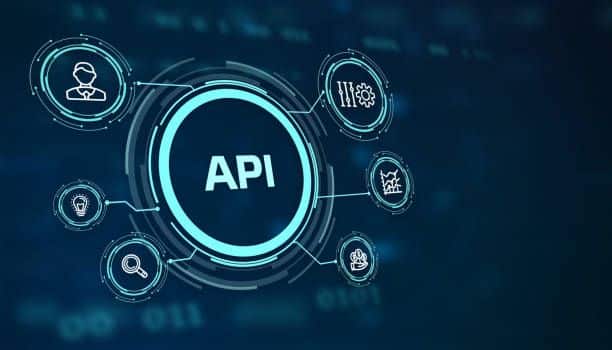Introduction
In the dynamic world of web development, the implementation and integration of API web services have become a cornerstone for building efficient, versatile, and interconnected digital platforms. APIs, or Application Programming Interfaces, serve as the fundamental building blocks in the architecture of modern web services, offering a plethora of functionalities that enrich user experience and operational efficiency. This blog post delves into the essential role of APIs in enhancing website functionality, with a particular focus on API web services and their impact on digital landscapes.
API web services have revolutionized the way web platforms interact with each other, allowing for seamless data exchange and functionality sharing. This integration transcends traditional boundaries, enabling websites to offer a more comprehensive, tailored, and user-friendly experience. The significance of APIs in today’s web environment cannot be overstated, as they empower developers to create more robust, scalable, and innovative solutions.
Understanding API Integration in Web Development
The Basics of API Integration
API integration is a technical process where different software applications are linked together to share data and functionality. This integration is critical in modern web development, as it allows for the creation of more complex, feature-rich websites. By leveraging API web services, developers can connect their websites to external services and databases, enhancing the site’s capabilities without the need to build every feature from scratch.
The integration process typically involves accessing the API of a desired service, using API keys or authentication methods to establish a secure connection. Once connected, websites can retrieve or send data to these external services, enabling functionalities such as payment processing, social media integration, and more.
The Impact of API Integration on User Experience
API integration has a direct and profound impact on the user experience of a website. By integrating API web services, websites can offer personalized content, real-time information updates, and seamless interactions with other platforms. For example, integrating a weather API can provide users with real-time weather updates, while a social media API can enable easy sharing of content across various platforms.
Furthermore, API integration streamlines processes for the user, reducing the need for repetitive data entry and ensuring a smoother, more efficient user journey. The integration of e-commerce APIs, for instance, can simplify the checkout process, leading to higher customer satisfaction and increased conversions.
The Advantages of API Technologies in Website Enhancement
Scalability and Flexibility
API technologies are instrumental in providing scalability and flexibility to websites. As business needs evolve, websites must adapt quickly to accommodate new features and handle increased traffic. API services enable this adaptability by allowing websites to integrate additional functionalities as needed, without overhauling their existing infrastructure.
Scalability is not just about handling more users; it’s also about expanding the website’s capabilities. APIs allow for the easy addition of new services and features, ensuring that the website can grow and evolve alongside the business.
Streamlining Development Processes
API technologies streamline the development process by providing pre-built functions and services that developers can utilize. This not only speeds up the development cycle but also reduces the potential for errors. By using well-established API services, developers can ensure that the website is built on reliable and tested components.
This streamlined approach also allows for a more efficient allocation of resources. Developers can focus on creating unique features specific to the website, rather than reinventing the wheel for common functionalities.
Navigating the Challenges of API Integration
Security Considerations
While API integration offers numerous benefits, it also introduces security challenges that must be carefully managed. APIs act as gateways to a website’s data and functionality, making them attractive targets for cyber attacks. Therefore, implementing robust security measures is paramount.
This includes using secure authentication methods, such as OAuth, and ensuring that data transmitted through API web services is encrypted. Regular security audits and monitoring are also crucial to identify and mitigate potential vulnerabilities.
Managing API Dependencies
Dependency on external API services can be a double-edged sword. While it provides extended functionalities, it also means that websites partially rely on third-party services. If these external services experience downtime or changes, it can directly impact the website’s performance.
To mitigate this risk, it’s important to choose reliable API providers and have contingency plans in place. This may include using fallback systems or maintaining alternative data sources to ensure website functionality remains unaffected.
The Future of Technologies in API Web Services
The Rise of AI and Machine Learning APIs
The future of API technologies is closely intertwined with the advancements in AI and machine learning. AI-driven API services are set to revolutionize the way websites interact with users, offering personalized experiences and intelligent functionalities.
From chatbots that handle customer service inquiries to recommendation engines that tailor content to individual users, AI APIs are opening new avenues for enhancing website functionality. This integration not only improves user engagement but also provides valuable insights into user behavior and preferences.
The Increasing Importance of API Ecosystems
As the digital landscape evolves, the creation of robust API ecosystems becomes more critical. These ecosystems consist of interconnected API web services that work together to provide comprehensive solutions. The focus is shifting towards creating APIs that not only serve individual purposes but also seamlessly integrate with other APIs to form cohesive systems.
This approach fosters innovation, as developers can combine different APIs to create unique and powerful web functionalities. It also encourages collaboration and standardization within the industry, leading to more reliable and user-friendly web services.

Conclusion
The role of API web services in enhancing website functionality is undeniable. From simplifying development processes to enabling innovative features, APIs have become the backbone of modern web development. As technology continues to evolve, the importance of API integration and API technologies in creating interconnected, efficient, and user-centric websites will only grow.
In navigating the complexities of API integration, developers must balance the benefits with the challenges, ensuring secure and reliable implementations. Looking ahead, the ongoing advancements in API technologies promise to further transform the web landscape, offering exciting opportunities for both developers and users alike. The future of web development is indeed API-driven, and embracing this paradigm is key to building successful, future-proof digital platforms.
What is API web service?
API web service is a communication protocol that allows different software applications to interact and exchange data with each other over the internet. It enables developers to access and utilize the functionalities of another software or service by making requests to its API (Application Programming Interface).
What are the 4 types of API?
Public API, Private API, Partner API, and Internal API.
What is Web API with example?
Web API is an application programming interface that allows different software applications to communicate with each other over the internet. It enables the exchange of data and functionality between systems, allowing developers to access and manipulate data from external sources. An example of a web API is the Google Maps API, which allows developers to integrate maps and location-based services into their own applications.


